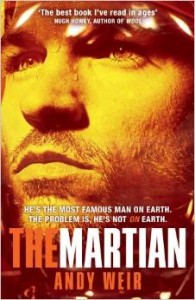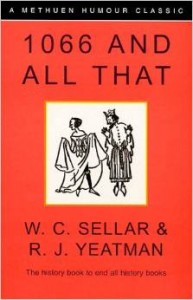Archive for August, 2014
Reading discoveries: The Martian
For the last year I have had a professional task which I have found almost impossible. It has made me think about writing in quite a new way. And also about how much the reader always brings to a book. For a first read, the writer is a sort of tour guide to the author’s interior landscape and the world of the story. But what the reader takes away is so much more than what the guide actually says. It depends on the reader’s habits, tastes, experience, expectations and even previous reading.
This month I found The Martian by Andy Weir. I fell over it by chance, browsing. It’s science fiction, a genre I like rather than love and by which I am often disappointed. This one was brilliant.
I ended by sitting up until 3.45 am to finish it because I couldn’t go to sleep without knowing the end. But it was about so much more than the ending. It sets up a series of dilemmas which mostly seem irresolvable until a cast of believable characters apply brain, body and will. The stakes are life or death right from the start — and then they escalate! The sciences — physics, chemistry, thermodynamics, even agriculture – almost become characters. One by one they are tested and may or may not betray our hero. I was on the edge of my seat, not just at the end but again and again throughout this thrilling book.
Now I need to buy a physical copy; e-book is not enough. This is one I will re-read, probably many times. Why did I LOVE it so?
Well, excitement, obviously. It’s a cracking book by anyone’s standards, written with passion. Andy Weir sounds an interesting guy from his interview, a self-proclaimed nerd who initially self-published his book of the heart. He might not call it that, of course. But note: he says ‘The deeper into the book I got, the more excited I became.’ Yup. Been there. Bliss. And it leaks out to the reader, believe me.
But what did I, the reader, bring to the experience? Me, non scientist, non nerd? I’m even terrified of changing from Windows XP, for God’s sake.
Though I did enjoy physics at school. And, of course, I plant stuff and sometimes it grows. That’s two things I share with The Martian. I like the way he goes about it, too. He evaluates, considers his options, works out an idea in principle, refines it. Yes, I do that. Sometimes. Then he puts his plans into practice in an orderly way. Um no, I could learn from him there. And he’s attractive. He feels all the things that I would feel but he doesn’t panic. And he’s heroically fair and philosophical. I find both pretty sexy.
In fact I once asked a group of romantic novelists which was the quality they most loved in a hero: looks? wealth? power? sophistication? biting wit? fond-of-dogs? ‘Competence,’ said one. Ah yes. We all went a bit dreamy. Well, the Martian is definitely the sort of guy who could put up a shelf and start the car on a cold day, if that’s your preferred lust object.
And I have been in love with one of the Martian’s literary ancestors for most of my life. In Victorian England a retired Naval Officer called Marryat wrote a book for children about a family of Royalist orphans who were rescued and hidden by their gamekeeper after the Battle of Naseby. Marryat was definitely a Cavalier by inclination and his hero is undoubtedly the hotheaded eldest son. But I loved his younger brother, Humphrey, who works out how to damn streams, catch eels and generally make life manageable and, above all, interesting.
But then, in reading The Children of the New Forest, I had already picked up the 1066 And All That view of the Civil War – Cavaliers, wrong but romantic; Roundheads, right but revolting. And to be fair to Marryat, he does manage one decent Roundhead, at least.
The world of The Martian is Roundhead-free. Nor is this science fiction with monsters and aliens. This is about real people. Lots of them. Yes, our hero is on his own. We tune into his interior monologue, all of it, including the stuff he doesn’t tell anyone else, even when he can. It is like being in our own heads. But there’s all the other people involved. There they are, wheeling remotely like the rings of Saturn – close colleagues, family, Management which could make a story in itself) along with office politics, media politics, even, at one point and very convincingly, international politics. The decisions in this book are not wholly the Martian’s. Other people’s plans are crucial to his survival. And everybody makes mistakes.
So there’s
- exciting plot
- author persuasiveness (bit mealy mouthed but can’t think of another short way to describe it)
- fabulous hero
- world of the story
- AND? – well, humanity.
The Martian has a generosity of spirit about his fellow man, as we learn in the first couple of pages, while he’s calculating how long he’s got to live. Mostly he’s not wrong. It makes for a mind-blowing climax.
Great character. Great book.


